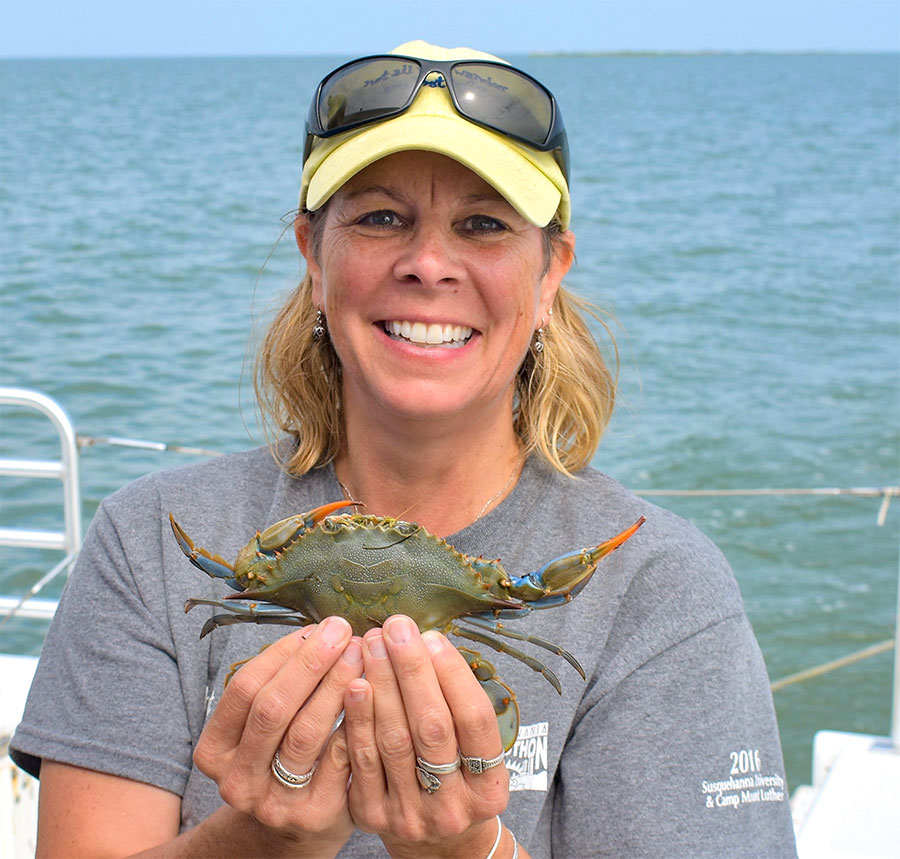Getting Her Hands Dirty
Lisa Blazure ’91’s days are spent far from the bay, but the goal of her work with the Stroud Water Research Center focuses primarily on restoring the Chesapeake’s health. And she’s doing so right in the heart of the Pennsylvania farmlands.
“The center was founded in 1967, before the Clean Water Act,” says Blazure. “Its original focus was on understanding overall stream dynamics, but they realized the need to look beyond the stream corridor, examining how the lands in the watershed were being managed.”

Despite knowing agriculture’s effect on nutrient and sediment loading, and understanding the benefits of no-till and cover crop practices, she felt out of her element. “But farmers are so knowledgeable,” she says. “They know about mechanics, chemistry, agronomy, and animal and soil biology — and they teach me as much as I teach them.”
It’s here that Blazure has found her niche: working with farmers to reverse decades of watershed damage through regenerative agriculture. She shares strategies to improve soil health, which in turn improves crop and herd health, and she educates farmers on the scientific benefits of the restorative efforts. “I get to teach about biology and ecology; how microscopic critters drive soil systems for nutrient density and water absorption,” she says. The result of the new practices — which are being widely adopted by local farmers thanks to people like Blazure and organizations like the Pennsylvania No-Till Alliance — does more than stop land degradation and decrease runoff. “It goes beyond sustainability. We’re not just keeping things the way they are. We’re working to rebuild and improve the soil.”
In her latest project, Blazure serves as the lead coordinator for the Pennsylvania Soil Health Coalition. “It brings many great organizations together, fostering collaboration with the common goal of improving farm profitability, improving the land and improving water quality. I’m really proud of that.”